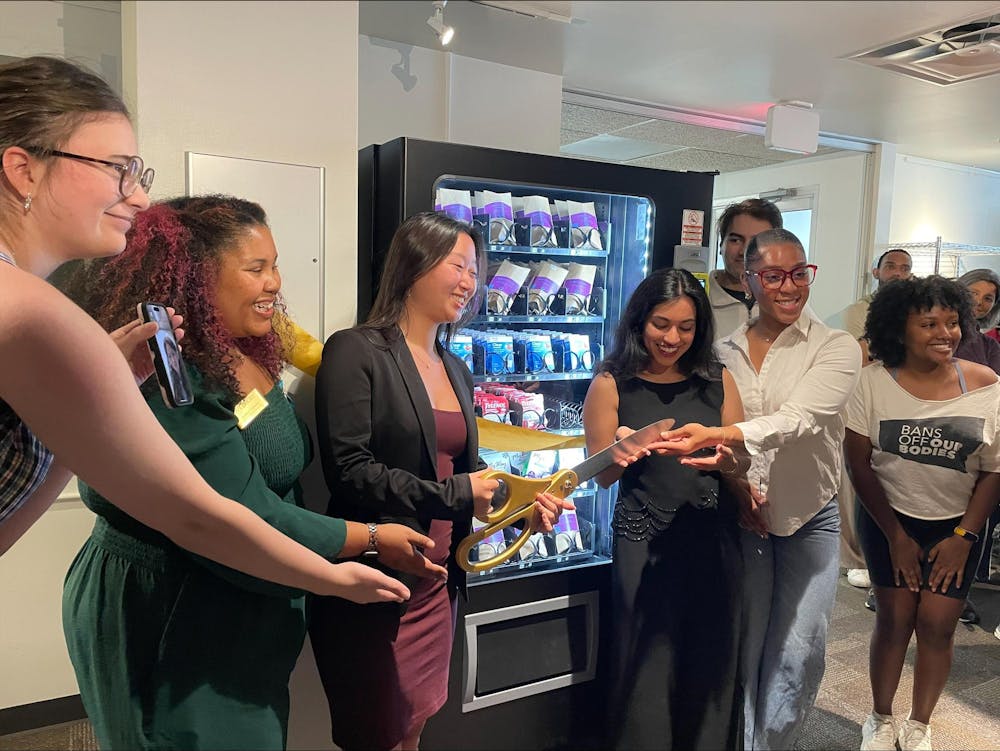The overturning of Roe v. Wade in 2022, which moved the power to regulate abortion to individual states, led to reduced access to reproductive and other health care resources across many states, including Georgia. According to Planned Parenthood Generation Action (PPGA) co-president and project coordinator Sophia Brittain (25C), the ripple effects of this decision have begun a new reality for many in the Emory University community.
For Oxford College students, obtaining basic medical supplies requires a 45-minute walk to the nearest pharmacy — a journey that former Oxford Student Government Association (OxSGA) Health and Wellness committee co-vice president and project coordinator Asmita Lehther (24Ox, 26C) said she has taken more times than she can count.
On April 16, the Student Government Association (SGA) unveiled a new health access vending machine on the first floor of the Alumni Memorial University Center (AMUC). Lehther, Brittain and Elizabeth Brubaker (24Ox, 26C) said these machines will give students access to free menstrual products, bandages, medication and other medical items.
The unveiling took place outside the Emory Student Center with around 20 people in attendance, before moving inside to the AMUC, where the vending machine is located.
This initiative is the result of months of collaboration between student leaders, University administration and wellness organizations, including Sexual Assault Peer Advocates, PPGA, SGA and OxSGA. Brittain said the effort behind the health access vending machine initiative involved a collaborative process among students from various organizations.
“This machine is more than just a box with products,” Brittain said. “It’s the result of time, energy and voices of students who cared enough to speak up. It exists because you filled out the surveys, told us what was missing and reminded us over and over again that health care access should never be a privilege; it should be a given.”
SGA has been planning to establish a health access vending machine for the past two years. Lehther, a member of the Health Access Vending Machines team, emphasized that the ultimate goal of the initiative is to close the gap in on-campus health care access.
“We want to make sure that students can access these essential health care items whenever they need them,” Lehther said.
Brubaker, another member of the health access vending machines team, said that the project not only has the potential to improve access to health care but also serves as an example of student advocacy creating visible change.
“We are the ones who secured the funding,” Brubaker said. “It has been a student-led initiative. This really just shows the administration that we can handle these really long-term, forward-thinking projects on our own and with their support.”
Siya Kumar (she/her) (28C) is a news editor at The Emory Wheel. She is from New Orleans, La., majoring in Economics and Creative Writing on the pre-law track. Outside of the Wheel, Kumar is a market news analyst for the Emory Economics Investment Forum and a writer for the Emory Economics Review. She loves baking, reading, and drinking coffee.






